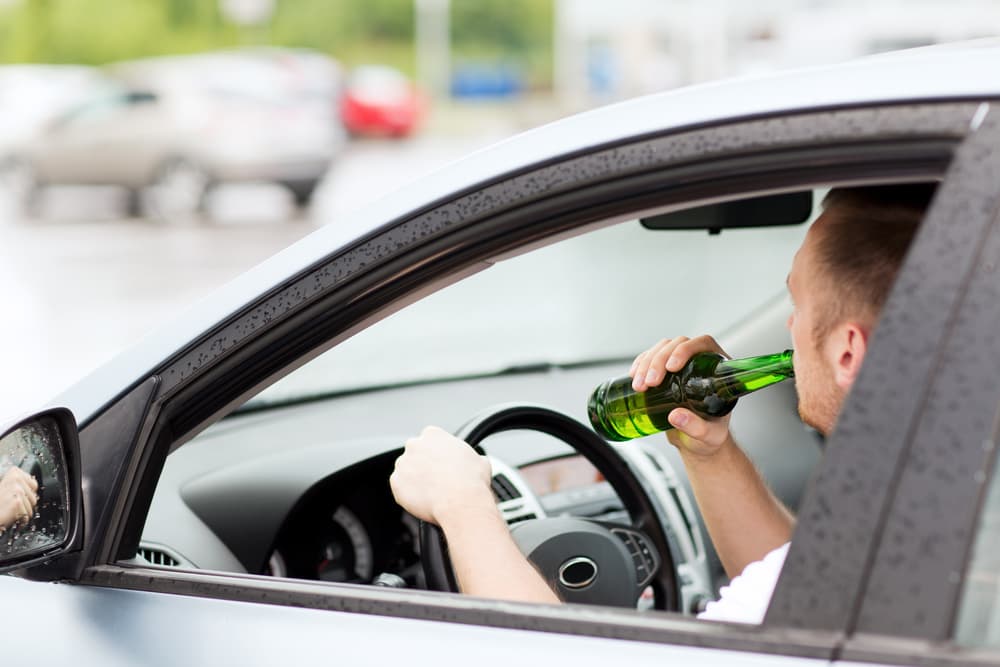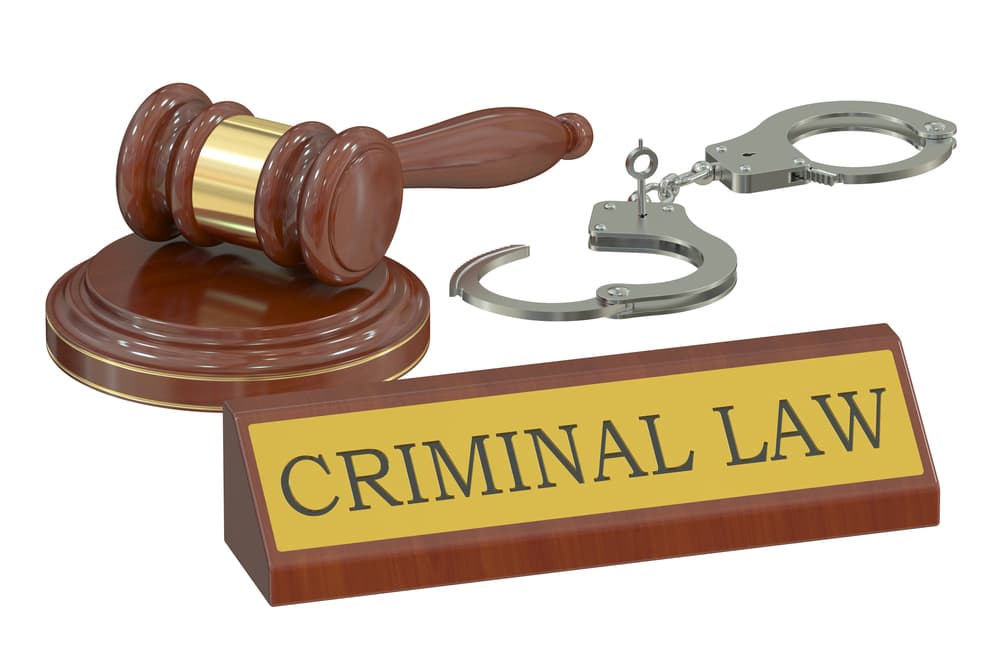Driving is an important part of daily life for many Texans, but with the privilege of operating a vehicle comes significant responsibility. Texas law imposes strict regulations to ensure the safety of all road users.
Understanding the primary driving offenses in Texas is important for anyone who gets behind the wheel. This knowledge not only helps you stay compliant with the law but also protects you and others from potential harm. If you find yourself facing legal issues related to driving offenses, consulting a San Angelo, Texas, criminal defense lawyer can provide valuable guidance and protect your rights.
Understanding Driving Offenses in Texas
Texas classifies driving offenses into different categories based on their severity and the potential harm they pose to the public. These offenses range from minor traffic violations to serious crimes that can result in substantial fines, license suspension, or even imprisonment. Being aware of these offenses can help drivers make informed decisions and avoid legal troubles.
Driving offenses in Texas are not just about breaking the rules; they are about actions that can endanger lives. The state takes these offenses seriously, and law enforcement agencies are vigilant in enforcing traffic laws. By understanding what constitutes a primary driving offense, you can take steps to prevent violations and contribute to safer roads.
Driving While Intoxicated (DWI)
One of the most serious driving offenses in Texas is Driving While Intoxicated (DWI). Under Texas law, a person commits a DWI if they operate a motor vehicle in a public place while intoxicated. Intoxication is defined as not having the normal use of mental or physical faculties due to the introduction of alcohol, drugs, or a combination of both, or having a blood alcohol concentration (BAC) of 0.08% or higher.
First-Time Offense

For a first-time DWI offense, Texas classifies the charge as a Class B misdemeanor. This carries penalties that include up to 180 days in county jail, a fine of up to $2,000, and a driver's license suspension for up to 90 days.
Additionally, first-time offenders may be required to attend a mandatory alcohol education program and complete community service hours. The severity of these penalties underscores the state's commitment to deterring impaired driving and promoting road safety.
Second Offense
If you are convicted of a second DWI offense within ten years, the charge escalates to a Class A misdemeanor. The penalties for a Class A misdemeanor are more severe, including up to one year in county jail, fines up to $4,000, and a longer driver's license suspension of up to 180 days. Second offenders are also typically required to participate in alcohol education programs and may face increased scrutiny from law enforcement.
Third Offense
A third DWI offense is treated as a state jail felony in Texas. This classification carries harsher penalties, including imprisonment for 180 days to two years in state jail and fines up to $10,000. Conviction of a state jail felony also results in a more extended driver's license suspension and may include mandatory installation of an ignition interlock device (IID) on your vehicle. The use of an IID requires you to provide a breath sample before the vehicle can start, helping to prevent future impaired driving incidents.
Fourth and Subsequent Offenses
For those convicted of a fourth DWI offense, Texas law elevates the charge to a third-degree felony. This severe classification carries penalties of 2 to 10 years in prison and fines up to $10,000. Third-degree felonies also result in significant impacts on your driving privileges, including prolonged license suspensions and potential restrictions on driving certain types of vehicles. The criminal record associated with a felony conviction can have long-term consequences, affecting employment opportunities, educational prospects, and personal relationships.
It's important to note that Texas has a "zero tolerance" policy for drivers under the age of 21, meaning any detectable amount of alcohol can lead to charges.
Operating a vehicle while intoxicated not only endangers your life but also the lives of others on the road. The state employs various measures to detect and deter drunk driving, including sobriety checkpoints and rigorous law enforcement patrols. Understanding the seriousness of DWI laws helps emphasize the importance of responsible alcohol consumption and safe driving practices.
Driving Without a Valid License

Operating a motor vehicle without a valid driver's license is illegal in Texas. This includes driving with a suspended, revoked, or expired license, as well as never having obtained a license. The state requires all drivers to carry a valid license appropriate for the type of vehicle they are operating.
Driving without a valid license in Texas is a serious offense with clear legal consequences. Under Texas law, operating a motor vehicle without a valid driver’s license is classified as a Class C misdemeanor. For a first offense, this can result in a fine of up to $500. If you are caught driving without a license, you may also face additional penalties such as mandatory court appearances and potential community service.
For repeat offenders, the penalties become more severe. Subsequent offenses can lead to higher fines, longer periods of license suspension, and even jail time, particularly if the individual has accumulated multiple violations over time.
Also, driving without a valid license can complicate matters significantly if you are involved in an accident. Without a proper license, you may face more serious charges, including vehicular assault or manslaughter, depending on the circumstances of the incident. Liability issues also become more complicated, as insurance companies may refuse to cover damages, leaving you personally responsible for any costs arising from the accident.
Leaving the Scene of an Accident (Hit and Run)
In Texas, drivers involved in an accident that results in injury, death, or property damage are legally obligated to stop and exchange information or render aid if necessary. Failing to do so, commonly known as a hit and run, is a serious offense.
The penalties for leaving the scene of an accident depend on the severity of the incident. If the accident resulted in property damage, the offense is typically a misdemeanor, but if there are injuries or fatalities, it can be charged as a felony. Consequences may include substantial fines, imprisonment, and a permanent criminal record.
Leaving the scene of an accident not only violates the law but also undermines the principles of responsibility and accountability. If involved in an accident, staying at the scene and following legal protocols can mitigate legal consequences and demonstrate respect for others involved.
Speeding and Aggressive Driving

Exceeding the posted speed limit or driving too fast for conditions is considered speeding in Texas. While it may seem minor, speeding can lead to serious accidents and is a common cause of fatalities on the road. Aggressive driving behaviors, such as tailgating, frequent lane changes, and ignoring traffic signals, also fall under this category.
Penalties for speeding and aggressive driving can include fines, points on your driving record, and increased insurance premiums. Accumulating too many points may result in license suspension. Also, excessive speeding can lead to reckless driving charges, amplifying the legal consequences.
Understanding the dangers associated with speeding and aggressive driving helps emphasize the importance of patience and adherence to traffic laws. These behaviors not only put the driver at risk but also endanger everyone else on the road.
Driving Without Insurance
All drivers in Texas are required to carry minimum liability insurance to cover damages or injuries in the event of an accident. Driving without insurance is illegal and can lead to significant penalties.
Consequences for driving without insurance may include fines, suspension of your driver's license and vehicle registration, and impoundment of your vehicle. Repeat offenses can lead to higher fines and longer suspension periods. In the event of an accident, lack of insurance can lead to personal financial liability for damages and injuries.
Carrying adequate insurance is a legal requirement designed to protect all parties involved in an accident. Ensuring that your insurance is current and meets state requirements helps avoid legal issues and provides financial protection.
Driving With an Open Container
Possessing an open container while driving is a violation of Texas law and carries specific penalties. Under the Texas Transportation Code § 545.417, having an open container in the passenger area of a motor vehicle on a public highway is classified as a Class C misdemeanor. This offense is punishable by a fine of up to $200.
An open container is defined as any bottle, can, or other receptacle that is open, has been opened, has a broken seal, or the contents of which are partially removed. It is important to note that this law applies regardless of whether you are the driver or a passenger in the vehicle.
However, the penalties escalate significantly when the open container offense is combined with a DWI charge. In Texas, if you are charged with both a DWI and possessing an open container, the presence of the open container can elevate the severity of the DWI offense. Specifically, while a first-time DWI offense is generally treated as a Class B misdemeanor, the addition of an open container can increase the charge to a Class A misdemeanor. This elevation in classification results in much harsher penalties.
A Class A misdemeanor in Texas carries substantial consequences, including the possibility of up to one year in jail and fines that can reach as high as $4,000. Additionally, this combination of offenses can lead to extended periods of driver’s license suspension. For individuals under the age of 21, Texas enforces a "zero tolerance" policy, meaning that any detectable amount of alcohol in their system can result in immediate penalties, further complicating the legal repercussions.
Street Racing
Participating in a motor vehicle speed competition on public roads is illegal in Texas. Street racing, also known as drag racing, is considered a dangerous activity that endangers the lives of participants and bystanders.
For a first-time offender, street racing is classified as a Class A misdemeanor. This offense can result in significant penalties, including up to one year in county jail and fines reaching as high as $4,000. Additionally, individuals convicted of street racing may face the impoundment of their vehicle for a period determined by the court, further emphasizing the severity of the offense. The combination of jail time and substantial fines serves as a strong deterrent against engaging in such dangerous activities.
If an individual is caught street racing for the second time, the penalties escalate to a third-degree felony. A third-degree felony in Texas carries much harsher consequences, including imprisonment for two to ten years and fines that can reach up to $10,000. This substantial increase in penalties reflects the state's commitment to preventing repeat offenders from continuing to engage in reckless and life-threatening behavior on public roads.
For those who commit street racing a third time, the offense is elevated to a second-degree felony. A second-degree felony carries the most severe penalties for street racing, with potential imprisonment ranging from two to twenty years and fines up to $10,000. These harsh penalties are designed to ensure that individuals who repeatedly disregard traffic laws and public safety are removed from the roads and held accountable for their actions.
How a Texas Criminal Defense Attorney Can Help

Facing a driving offense charge can be overwhelming, and the legal system can be hard to understand. A knowledgeable criminal defense attorney can provide valuable assistance. At the Law Offices of David M. White, we can explain your rights and options, helping you understand the charges against you and the potential outcomes. This understanding is important for making informed decisions about your case.
Our team can investigate the case thoroughly, examining the evidence, identifying weaknesses in the prosecution's case, and gathering information to support your defense. This meticulous approach can uncover details that may be pivotal in your favor.
Negotiating with prosecutors is another area where we can help. Skilled Texas criminal defense attorney David M. White can negotiate for reduced charges, alternative sentencing, or even dismissal of the case, depending on the circumstances.
Professional representation in court ensures that your case is presented effectively. Our Texas criminal defense team will advocate on your behalf, protecting your rights and interests throughout the legal process. We will handle legal procedures and filings, allowing you to focus on your life.
Contact the Law Offices of David M. White Today
If you are facing a driving offense charge in Texas, don't go through the legal system alone. The consequences of a conviction can affect your personal and professional life. Seeking legal assistance can make a significant difference in the outcome of your case.
Contact the Law Offices of David M. White today at 325-240-3610 for a free consultation. We will discuss your situation, explain your options, and begin crafting a defense strategy aimed at achieving the best possible result. Our commitment is to stand by your side and fight for your rights every step of the way.
